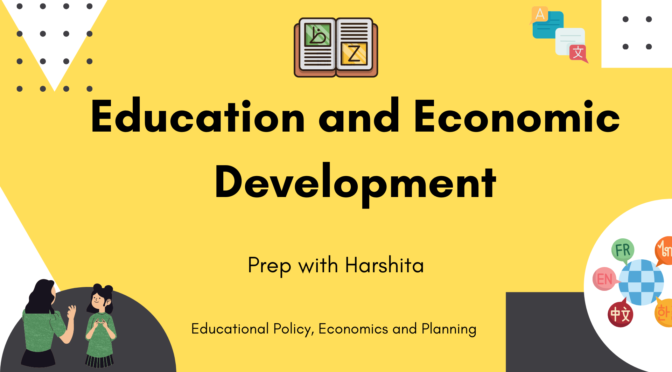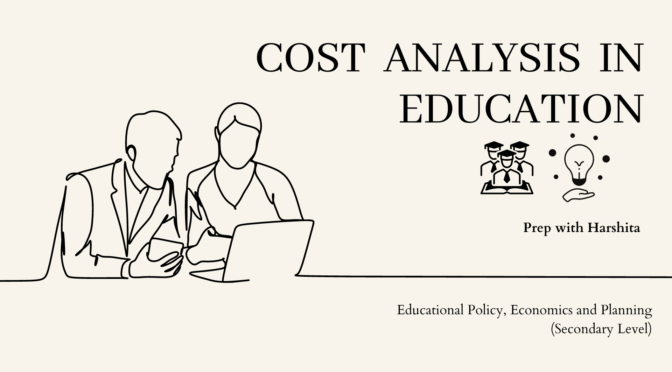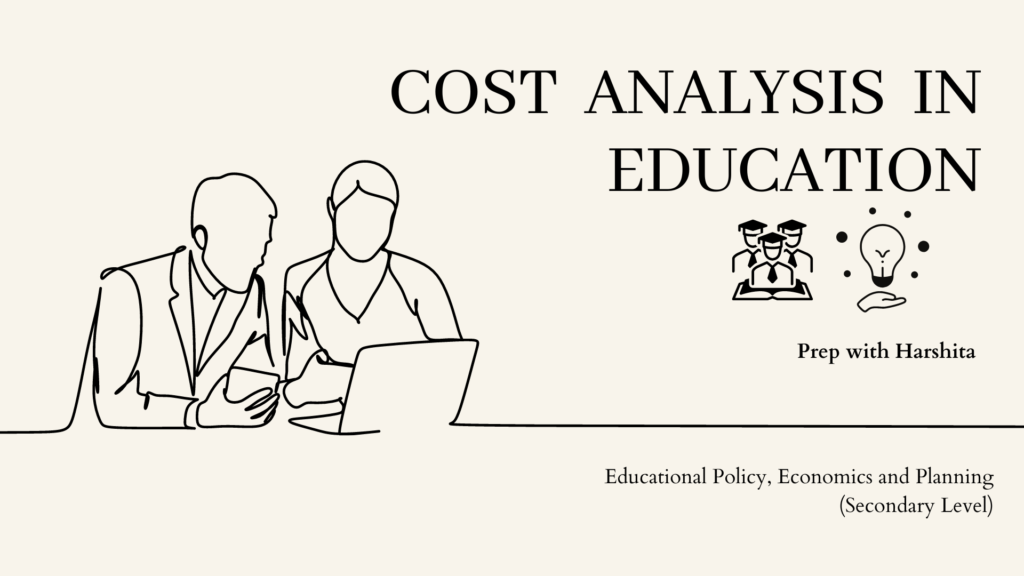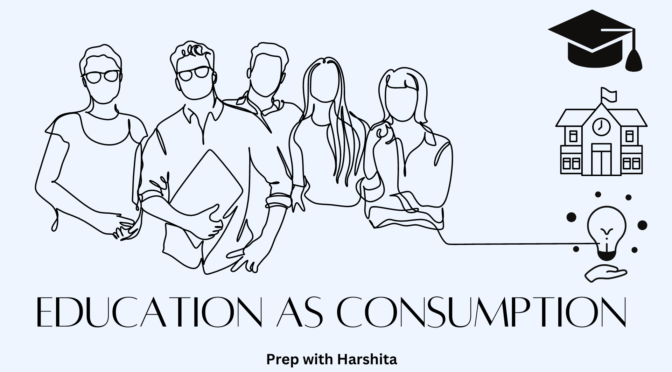Education and economic development are closely interrelated. Education is a crucial factor in the economic development of any country. A well-educated population is vital for economic growth, productivity, and competitiveness in the global economy. Education plays a critical role in preparing individuals for the workforce, enhancing their skills, and enabling them to adapt to new technologies and industries.
There are several ways in which education can contribute to economic development:
- Increased productivity: Education enables individuals to acquire the skills, knowledge, and abilities needed to perform their jobs more efficiently and effectively, which results in increased productivity and higher economic output.
- Innovation: Education plays a crucial role in promoting innovation and creativity, which are essential for economic growth. Well-educated individuals are more likely to develop new ideas and technologies, which can lead to new products, services, and industries.
- Entrepreneurship: Education can also promote entrepreneurship and self-employment, which are essential for economic development. Well-educated individuals are more likely to start their own businesses, which can create jobs and contribute to economic growth.
- Improved governance: Education can lead to better governance and more effective public institutions, which are essential for economic development. Well-educated individuals are more likely to participate in the political process, hold their leaders accountable, and advocate for policies that promote economic growth.
Overall, education is a critical component of economic development. Governments and policymakers must invest in education to ensure that their citizens have the skills, knowledge, and abilities needed to succeed in the global economy.
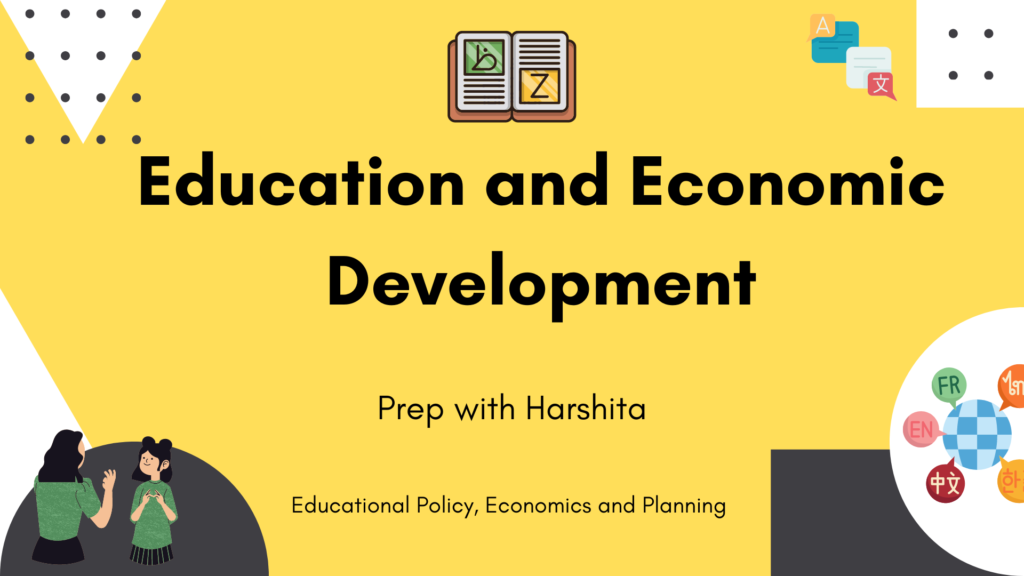
Also Visit : Prep with Harshita

